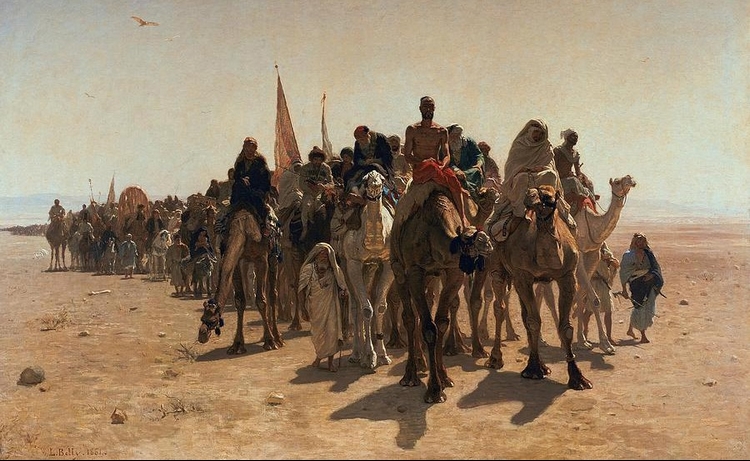Biography of Imam Ali (PBUH) - Battle of Badr
Perhaps the Battle of Badr is one of the most common battles that historians have falsified, misled, and introduced lies to it. Most of the ancient historians who wrote about it as an initiative of the Prophet to cut through a commercial caravan of Quraish led by Abu Sufyan, the leader of the polytheists, but this was never the case, since the Battle of Badr was a response to the aggression of the Quraish against the homes, children, families, and property of those who left Mecca. These people had to flee from the oppression of the polytheists of the Quraish, as the leaders of the Quraish and their major merchants seized anything that belonged to the Quraishite Muslims who emigrated with the Messenger of Allah, and they carried a lot of their confiscated possessions, especially their livestock, to sell them in the Levant. That is why it was necessary for those who were attacked to regain their rights, so they sent a squad of fighters to join a convoy that contained what was their property.
And because false history is the weapon of aggressors and delinquents, nothing remains for the human but the reason and logic to draw a true picture of the exact reasons that led Muslims to expose the caravan of Abu Sufyan. As the latter had overseen the abuse and killing of Muslims in Mecca, and he was the one who planned to assassinate the Prophet, and he was also the one who ordered the seizure of property of those who immigrated from Mecca. Perhaps the most offending reason for Muslims, is what historians have hidden the fact that the Quraishis took the children and women of Muslims, who remained in Mecca to sell them in the slavery in the Levant, and this is the mark of the polytheists at all times.
Thus, Quraish also prepared those who joined the caravan, so the two groups met in a place called Badr, which contains a well of the same name, (please read the biography of Imam Ali, peace be upon him, and his position in the battle of Badr in the section of the battles of Imam Ali, peace be upon him, at the site).
Some of the characteristics of Amir al-Muminin Ali ibn Abi Talib, peace be upon him:
Have you heard of a ruler who didnt meet those who conspired to deprive him of power in confrontation and similar conspiracy?
Have you ever heard of a man who was robbed the opportunity to sit on the throne of an empire, and only met them with advice, love and guidance?
Have you heard of a man who became a ruler, remained sitting on a mat, and only ate a loaf of bread, just like the hungry and deprived people in his country?
Have you heard of a ruler who didnt wear soft clothes, because among his people there were those who wore rough clothes?
Have you heard of a ruler who didnt hoard a single bill for himself?
Have you heard of a ruler who doesnt invade, and then calls it conquests?
Have you heard of a man plotting governors against his authority, but he didnt abuse them?
Have you heard of a warrior that an army came to destroy his capital, meanwhile he gave them a chance to drink water?
Did you hear about a man who was told something that aroused rock by a swordsman from the fiercest Arab knights in defiance, and he answered him proposing an understanding that “the word of Allah is supreme,” not out of fear for himself, but for fear of his opponent?
Have you heard of a man who was assassinated, his children were captivated and his followers killed him. However he instructed them on his deathbed, to do good to him, to be fair in his affairs, to feed him with their food, not to torture him, and to only hit him with one blow, like the one that the killer struck him?
Have you ever heard of a man who is fair the way that law-makers didn’t reach the level to have a little bit of justice, his equality for humans among each other, and his equality of himself with the poorest people?
He is Imam Ali ibn Abi Talib, peace be upon him, for whom wars witnessed the most miraculous heroics, trials and grievances witnessed to him the greatest attitudes of patience, and the positions and thrones testified to him that he was humbled by them, renounced their pride, and lived the life of his poorest citizens. He is the one who has the power of state’s earnings disposal, which extends from Arabian Peninsula to the Red Sea, and from the Mediterranean Sea reaching the borders of China.





